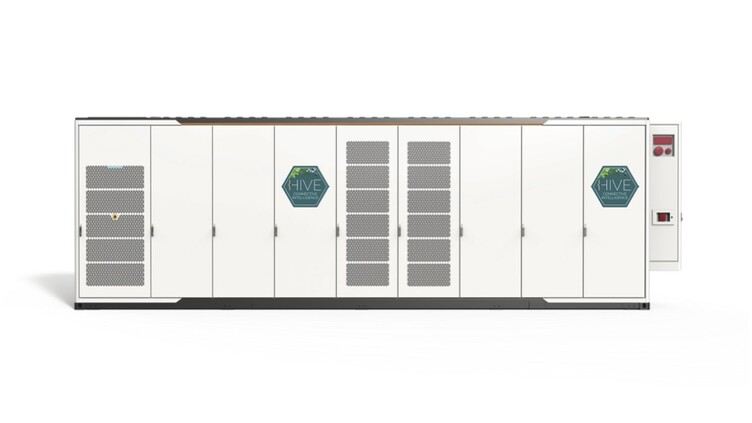Clean Energy Transfer Fund (CETF) said detailed planning has commenced for the deployment of more than 20 battery energy storage systems in the New South Wales Hunter Valley region, with “hundreds more” of the 4.99 MW/20 MWh batteries planned for the state and other jurisdictions.
The batteries will be coordinated with each ‘hive’ comprising 10 individual energy storage systems, providing a combined capacity of up to 49.9 MW/200 MWh. The first of the battery hives is expected to be commissioned in early 2024 with CETF to operate the assets on a merchant basis in the wholesale power market.
CETF said the batteries will be sourced from Chinese solar and storage technology manufacturer Sungrow and will be connected through technology delivered by Brisbane-based infrastructure management service provider Tukio Intelligent Infrastructure.
Rob Ashdown, co-founder and managing director of both CETF and Tukio, said the focus on sub 5 MW batteries meant the planning and regulatory processes are more streamlined, allowing the company to rapidly deploy a network of renewable energy storage systems.
“Large grid-scale batteries have long lead times, require massive capital investment, and are competing for funding in an increasingly competitive environment,” he said.
“Project Hive is a smarter way to help Australia’s energy networks evolve. Our innovative hive concept allows us to rapidly and efficiently deploy coordinated and cost-effective energy storage solutions, which could play a major role in Australia’s renewable energy transition.”
Ashdown said the first two battery hives will be located on privately-owned rural properties close to network operator Ausgrid’s existing substations in the Hunter Valley, including Seaham, Polkobin, Rothbury, Denman, Aberdeen and Scone in the Muswellbrook region.
Ashdown said he has been “blown away” by the response from local landowners willing to rent out a small corner of their property to host a battery with the company now looking to extend its strategy throughout NSW, with other states to follow.
“The positive response from landowners, network operators and regulators, means we will now move into other parts of NSW, while also planning for expansion into Victoria and Queensland and later into Western Australia,” he said.
CETF said the hive batteries will be operated on a merchant basis, buying and selling direct into the National Electricity Market, while also providing key firming and grid services such as frequency control ancillary services (FCAS) when requested.
This content is protected by copyright and may not be reused. If you want to cooperate with us and would like to reuse some of our content, please contact: editors@pv-magazine.com.









2 comments
By submitting this form you agree to pv magazine using your data for the purposes of publishing your comment.
Your personal data will only be disclosed or otherwise transmitted to third parties for the purposes of spam filtering or if this is necessary for technical maintenance of the website. Any other transfer to third parties will not take place unless this is justified on the basis of applicable data protection regulations or if pv magazine is legally obliged to do so.
You may revoke this consent at any time with effect for the future, in which case your personal data will be deleted immediately. Otherwise, your data will be deleted if pv magazine has processed your request or the purpose of data storage is fulfilled.
Further information on data privacy can be found in our Data Protection Policy.